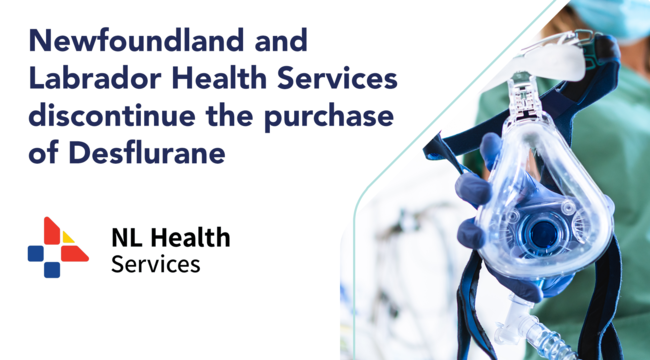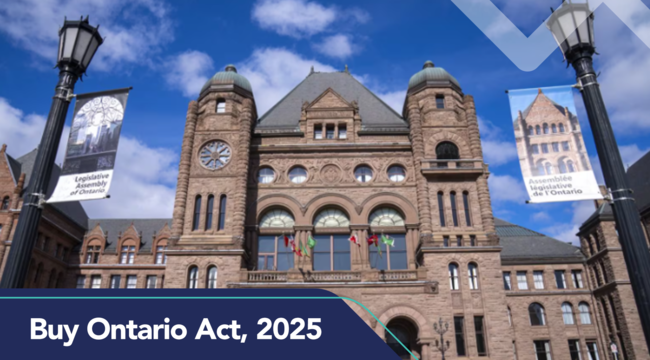HealthPRO Canada News
May 19, 2021
The numbers guy: Derek Spinney sees financial data as an enabler, not a barrier

His years in the private sector taught Derek Spinney how to turn complex data into something meaningful. Since joining Nova Scotia Health two and a half years ago, he’s now passionate about finding ways to use healthcare’s limited financial resources as a way of creating value and doing the things everyone knows we need to do. Derek recently joined the HealthPRO Board of Directors.
Derek, you had a long and successful career with Bell Aliant or BCE (20+ years). What prompted your shift into healthcare?
Nova Scotia Health is the largest employer in Nova Scotia and I would suggest one of, if not the most complex organization in Atlantic Canada. So when this opportunity became available, it seemed like a very good fit – not just a fit from past experience, but a fit in the desire to invest in my home province and to leverage the skillset and experience that I had acquired over the years working at a large private company.
I know you probably had a few jobs when you worked at Bell. What was your main career while you were there?
The last title I had at Bell was the Director of Finance Analytics Transformation. What we were quite successful at, I think, at Bell Aliant, was our ability to gather complex data – what was taking place in the organization and the marketplace – and then using technology to present it in easier-to-understand ways. So the executives could spend more time analyzing the business problem as opposed to a data problem that you might have.
It’s a completely different model where I am now, but one of the things that I hope to learn more about is, how do healthcare organizations make decisions in a resource-constrained environment? A lot of the things we know we need in healthcare make perfect sense, like hiring more doctors to attend to cancer patients, but how are we going to pay for that? What we need to do more of in healthcare is really understand how to optimize our dollars so that we can do more of those great things that everybody wants to do, while still considering the financial equation. Instead of seeing limited financial resources as a barrier, I would like to shift that to seeing them as an enabler.
Derek, you’ve been at Nova Scotia Health for over two years. What is something that people would be surprised to learn about NSH?
When people see Nova Scotia Health they think hospital, which, of course, is part of what we do. But people often don't understand the sheer size and complexity of this organization. With 22,000 employees plus physicians and volunteers, we are the largest employer in Nova Scotia. We have over 40 locations that occupy 8+ million square feet. We probably have the largest supply chain operation in Nova Scotia. We have courier and transportation networks operating every day, maintain a 50,000 SKU inventory list, and operate 14 distribution points across the province. We serve more food than any other organization in Nova Scotia every day.
Those are pretty impressive stats Derek – and so is the fact that you can reel them off!
That's part of the job – taking a bunch of data and turning it into things that people would find interesting. I'm trying to get more business professionals interested in working at Nova Scotia Health. There's a lot of people here with PhDs, and physicians and neurosurgeons and registered nurses, and all the professions you would expect, but we don’t excel at attracting professional business people here. And when I say business, I don’t just mean accounting, but supply chain, IT or food services. The people here are great, and one of my goals is to attract, develop and retain more top talent.
It’s clear that you rely on data to make sense of all the moving parts of a big organization like Nova Scotia Health. How have you learned to integrate the people side of things and bring out the best in the teams you work with?
I’ve always known you need to engage and mobilize staff, but this has become more obvious as I work for increasingly larger and more complex organizations. There are around 3,500 people on our Corporate Services team at Nova Scotia Health. I can’t talk to 3,500 people directly but what I’ve started doing – and this paused appropriately during COVID – is going to visit people in their space, and letting them show me what they do.
I took the opportunity to walk through our kitchen for instance and meet the people who were cleaning the dishes to making the food. The Kitchen team couldn't wait to show me everything they were making, and we shared one of their fresh muffins. I went and met with housekeeping, and I hope to go back and work a four-hour shift with them. People think it’s a stunt, but for me I actually enjoy it. Then you're not talking at people, you're talking with them, and it changes the whole culture.
What makes the mission of HealthPRO meaningful to you?
It's meaningful to me because of the value HealthPRO delivers into local communities and healthcare. That's what they're about. For us at Nova Scotia Health, that value equation pays off significantly. They're able to secure pricing that we wouldn't be able to get on our own and they're able to take on a sheer number of contracts that we couldn't reasonably do. So for me, it's the value that HealthPRO is creating for the membership.
What does good governance and being an active board member mean to you?
Good governance to me is asking: is the equation being optimized or are we leaving value on the floor? That’s part of what I look for, and it’s part of my job too. I report into a board here and I look to them to help me ensure that the appropriate governance is in place. But it's a means to an end kind of thing, in that it's not about governance or controls simply for the sake of controls. We’re doing those things so the value equation is being optimized.
What important lessons have you learned from the mentors in your life?
One of the biggest impacts came from someone who would not have considered himself a mentor. There was an older gentleman at the church where I grew up. This gentleman was so different from the way I felt about church at the time. His approach to people has stayed with me now, decades later, because he would come up and say, "Boy, am I ever glad to see you today. You've made my day just seeing you.” He made a really big deal of me and that really resonated with me. Now I try to do the same with others. It is all about our people.


